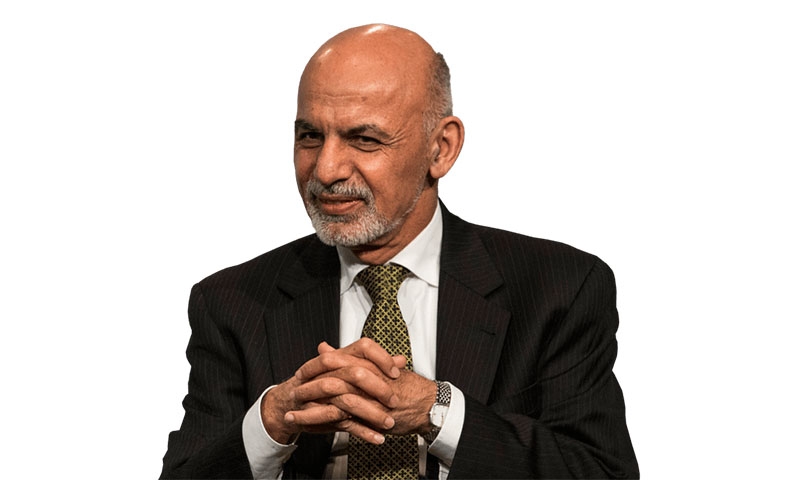Afghans deserve an end to war
About half of Afghanistan’s population — around 33 million — is young enough to have never seen a day of peace. The milestones of their young lives have been marked by loss and violence. For 38 years now, peace in my country has remained a dream, a prayer on our lips.
On June 15, on the festival of Eid, our prayers were answered. A few days earlier, as the month of Ramadan was coming to an end, almost 3,000 Islamic scholars convened in Kabul and issued a fatwa reminding us that the quest for peace is a commandment of Allah and a national imperative. They requested the government to declare a ceasefire.
For the first time in nearly four decades of fighting, the Afghan government announced a unilateral ceasefire for eight days. The Taliban reciprocated shortly after with a cease-fire for three days over the Eid holiday.
Afghans across the country reacted instantly and without hesitation, mustering compassion, conviction and courage to show a different face of Afghanistan to ourselves and to the world. Many had been waiting for this day their entire lives. Taliban fighters entered our cities and towns across the country to join the Eid celebrations with government officials and citizens.
Afghans living in cities returned to their homes in the countryside — some for the first time in years — without fear. Parents allowed children to play on the streets and walk to parks without fear of a suicide attack. Shops stayed open until midnight as the Taliban and government forces embraced and danced in the streets, many posing for selfies.
Afghan women across the country took the opportunity to confront Taliban fighters, bravely voiced their concerns and reinforced their demands for peace and inclusion. Government officials and Taliban fighters laid down their weapons to eat and pray together, embracing one another simply as fellow countrymen. For three days, it made no difference whether you were a Talib or an Afghan soldier; a woman or a man; a Tajik, a Pashtun or a Hazara. For three days, Afghans were united and elated by the possibility of peace. We rediscovered tolerance and acceptance within us.
As president of Afghanistan, the most difficult decision I have made was to ask my people to join me in this bold experiment to reject the perceived wisdom of the analysts and observers. The cease-fire proved the wisdom of the Afghan people over all other assumptions. The celebration was brief, as the Taliban did not reciprocate our decision to extend the unilateral cease-fire for 10 more days. But those three days showed that we must challenge our assumptions about peace in Afghanistan.
Both international and national observers and analysts argued that almost four decades of conflict had fragmented Afghanistan to the extent that reconciliation and acceptance of each other were going to be extremely difficult, if not impossible. However, the widespread jubilation across the country demonstrated the strength of Afghan national identity.
Another assumption was that Taliban fighters would never stop fighting and accept their fellow citizens. But our cease-fire was endorsed by the Taliban leadership and relished by their fighters. Ordinary people welcomed them warmly and demonstrated that every Afghan is tired of war and desires an end to it at any cost. The cease-fire also showed that imagination and a quest for inclusion are more potent than bullets and bombs. Had we not followed the will and wisdom of the Afghan people and taken the first step toward peace, the stalemate that prevented us from speaking to and accepting each other would not have been broken.
Continuing to fight has become costlier for us than taking a risk for peace with very high civilian casualties this year. The Afghan government, our international partners and the Afghan Taliban must learn from these days of peace as we move forward. Peace is a recurring test of will and humanity for the leadership involved in the conflict. We are forced to re-examine our assumptions about the sequence in which peace can be achieved, how our national consensus can be deepened and the arrangements through which regional consensus can be broadened and international support channeled.
The Afghan people demand peace. During the cease-fire, I met with a group of peace activists from Helmand who had walked more than 400 miles to Kabul. I met them on a street with no other officials accompanying me, as they had requested. Among their demands were the extension of the ceasefire with the Taliban, establishing an address for peace negotiations that is representative of all Afghan ethnic groups and providing security guarantees for Taliban after reconciliation.
I accepted their demands, extended the government’s cease-fire for 10 more days and announced that I will sit and negotiate with the Taliban’s leader, Mawlawi Haibatullah Akhundzada, anywhere he wants.
I hope the Taliban leadership will also receive the group with the respect they deserve and accept their demands. I call on them to respond positively to the peace proposal I extended to them in February, extend the cease-fire, agree on a venue for negotiations and engage in a formal negotiation process in good faith.
The people of Afghanistan deserve an end to this war, and the region and the world at large have much to gain from it.
Related Posts

